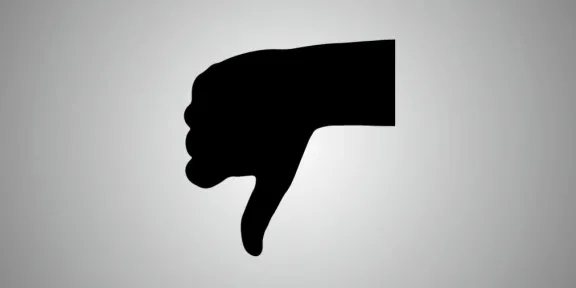
Leadership or Lip Service?
On Thursday April 27, UCSF held the 10th Annual Chancellor’s Leadership Forum on Diversity and Inclusion, but I was not entirely convinced that all of the leadership were there to listen. In fact, one exchange in particular told me that when it comes to diversity at UCSF, lip service sometimes takes precedence over action.
I won’t summarize the event, which you can watch here. Instead, I offer my take on one part of the panel discussion when Engie Salama, a second year pharmacy student asked about UCSF’s support of the mental health of graduate and professional students (found at 1:22:30 in the video).
“This has been my most challenging week by far,” Salama began, mentioning the “ceaseless midterms” and “endless assignments” that come with being a pharmacy student.
Her concern was that students are working themselves raw, and despite the resources provided by Student Health and Counseling, it doesn’t feel like enough.
Salama mentions her bipolar and depressed classmates that have to be put on medication just for their time at UCSF, which I found striking.
She asked how UCSF can further support students with mental health struggles, particularly those from diverse backgrounds that may be especially vulnerable.
Executive Vice Chancellor Daniel Lowenstein’s answer was disappointing to say the least. To paraphrase, he said it’s supposed to be tough, use your resources. He started by telling Salama that her experience is not unique to her school or UCSF and that training is a “challenge” for health professions everywhere.
Salama interrupted, “I just think it’s worse here at UCSF.”
“Um, it’s not,” Lowenstein responded in a deadpan tone, eliciting chuckles from the audience.
Lowenstein justified the rigor.
“The school is being charged by society to essentially push us to our limits to learn as much as we possibly can,” acknowledging that it’s “an impossible challenge.”
He said he believes professional and graduate students struggle to accept that we will feel ignorant and inadequate, and this can feed mental illness.
Lowenstein reiterated that Salama should take advantage of the school’s resources. He added that she should “network” and share her concerns with faculty and leadership and that he knows for a fact that every one of them will respond.
I found Lowenstein’s answer to be dismissive and deflective. I have multiple issues with how this exchange went down.
First of all, I was baffled by Lowenstein’s confidence that the rigor of UCSF’s programs across all divisions is basically the same everywhere else. Considering the variability in curricula, teaching requirements, and program structure across universities in the graduate division alone, it’s quite a claim that the playing field is even.
More importantly, Lowenstein’s response failed to take into account Salama’s individual experience as a student at UCSF. The rigor and difficulty of schooling is not just a measure of classes, exams, and training in isolation; it also intersects with environment.
UCSF students deal with extremely stressful coursework, but when you add in the lack of financial security and isolation that can come with living in this specific city, it creates a hardship that is unique to this institution. And yes, this can make being a student “tougher” here than other universities.
Compound this with being from an underrepresented and even targeted population, and problems are bound to crop up. Worse, however, was watching a white man in power shut down the experience of a brown student at a forum on diversity of all things.
Engie Salama literally appeared on a video opening up the panel, where she happily spoke of UCSF’s support in this climate, but Lowenstein claimed that UCSF couldn’t do more for her when she had a complaint. It was almost as if the leadership wants to take credit for the positive things going on at UCSF but none of the negative things.
I felt incredibly queasy at the laughter that came with the exchange, and I can only hope that it wasn’t meant to belittle Salama, but that the audience was laughing nervously, like when your boss says something off-color and you have to go along with it to pay your bills.
Second, Lowenstein puts no blame on the university's training, culture, faculty, or leadership. Instead, he deflects the problem to society.
He takes an “our hands are tied” approach, blaming the toughness of higher education at UCSF on the impossible challenge set by society. And I get that to an extent — there’s a lot to learn in professional and graduate school, and it will always be a challenge. However, Lowenstein doesn’t even begin to question how things are run.
Let’s revisit what Salama said: people are on medication just during their time at UCSF. Do we really want to say that all UCSF can do is treat the illnesses it helped cause?
In the graduate division alone, there is a lot of room for positive change. Many of the faculty seem to believe that being in a lab 24/7 is the way things should be, and that if you’re not tired and stressed, you’re doing it wrong.
I know a PI who said you shouldn’t be depressed in lab because lab should be a happy place. Power dynamics can make sharing our struggles extremely difficult, but Lowenstein acknowledges none of this. Instead, these issues must be society’s fault and it’s all on the student to find resources.
No matter how much he tries to deflect with notions of the “impossible challenge” and existing school support, Lowenstein’s suggestion that the university is functioning as it should carries a subtext: that students who are feeling overtaxed are showing weakness — they are crashing themselves upon the immovable ideal training.
It’s also a gross oversimplification to say that a decline in student mental health is due to feelings of inadequacy. Yes, this can be a contributing factor, but there are so many other factors of student life that can contribute to mental illness.
For example, if you’re expected to be studying or in lab for almost all of your waking hours, than work-life balance is not going to exist.
Which brings me to my final point: Lowenstein did not acknowledge consideration for individuals from diverse backgrounds at all. This was a forum on diversity and inclusion, yet his answer completely ignored diversity.
There was no re-iteration of diversity training for faculty or staff, no attempt to address whether Student Health and Counseling is even equipped to handle students from diverse backgrounds, no contemplation on how studying or being in lab most waking hours isolates one from supportive family. He didn’t need to supply all these answers, but the least he could have done was acknowledge that being from a diverse background may synergize with UCSF and the detriment of mental health.
I am thoroughly disappointed with Lowenstein’s response. If this reflects how leadership treats students, especially those from underserved and underrepresented populations, it’s going to be a very slow march to equity here at UCSF.


